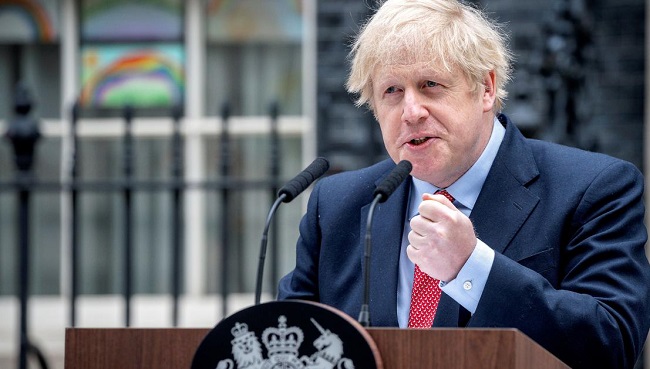On Tuesday, a parliamentary study concluded that the British government had waited too long to enforce a lockdown in the early days of the Covid-19 outbreak, wasting an opportunity to restrict the sickness and leading to thousands of unnecessary deaths.
According to the joint report from the House of Commons science and health committees, the deadly delay was caused by ministers failing to question the recommendations of scientific advisers, resulting in a dangerous level of “groupthink” that caused them to dismiss the more aggressive strategies adopted in East and Southeast Asia.
When the National Health Service in Britain was in danger of being swamped by rapidly increasing diseases, Prime Minister Boris Johnson of the conservative Conservative administration ordered a lockdown.

It was determined that a lockdown should be avoided “because to the enormous harm that it would entail to the economy, normal health services, and society,” the report stated. A full lockdown was unavoidable and should have been implemented earlier “in the absence of other techniques such as strict case isolation, a meaningful test-and-trace operation, and robust border controls.”
Johnson has promised a formal public inquiry of the government’s response to Covid-19, and it will begin next spring. This report from the British parliament comes at a moment of growing impatience with that timeline.
To better respond to the current threat posed by Covid-19 and prepare for future threats, lawmakers said they wanted to investigate why Britain did “much worse” than many other countries in the early days of the pandemic.
Former Health Secretary Matt Hancock and former government insider Dominic Cummings are among the fifty witnesses cited in the report’s 150 pages. 22 legislators from the Conservatives, Labour, and the Scottish National Parties (the three largest parties in Parliament) all voted in favour of it.
The committees applauded the government’s early choice to engage in vaccine development and its focus on vaccinations as the final way out of the pandemic. As a result of these policies, the inoculation programme in Britain has been so effective that about 80% of the population aged 12 and up has been immunised.
The committees concluded that “millions of lives will ultimately be spared” as a direct result of the worldwide immunisation initiative in which the United Kingdom has played a leadership role.
Test-and-trace was criticised for being too slow, unsure, and disorganised, which they said impeded Britain’s response to the outbreak.
Official scientific advice that widespread infection was inevitable due to limited testing capacity, no immediate prospect for a vaccine, and the belief that the public wouldn’t accept a lengthy lockdown informed the government’s strategy during the first three months of the crisis, according to the report. Consequently, instead of aiming to eradicate the virus entirely, the authorities focused on controlling its spread.
According to the paper, the U.K. was not alone in making this “major early blunder,” as many other European and North American nations did as well.
The committees noted that “receiving advice is not enough for accountability in a democracy; elected decision-makers must also examine, question, and challenge counsel before making their own decisions.” It was interesting that fatalistic ideas about the impossibility of suppressing the virus weren’t questioned until it became evident that the NHS would be overwhelmed, even though the situation was evolving rapidly.
The research “hints at a less-than-healthy” connection between government and scientific organisations, according to Trish Greenhalgh, a professor of primary care health services at the University of Oxford.
Hundreds of people are still dying from Covid-19 every week in Britain, while advisory bodies are still debating what constitutes “sufficiently definitive” proof.
Greenhalgh remarked, “Uncertainty is a defining aspect of crises.” When faced with an urgent crisis for which definitive solutions evade us, should we substitute “following the science” with “deliberating on what best to do?” This analysis implies that unless we want to keep making the same mistakes we’ve been making recently, we should.
The committees were told that even high-ranking officials like Cummings and Hancock were hesitant to go against the scientific consensus.
As early as January 28, 2020, Hancock admitted that he had trouble convincing scientific advisors to support his demand for mass testing of persons who did not exhibit signs of Covid-19.
According to his testimony, “I was in a situation where I did not have hard evidence that a global scientific consensus of decades was erroneous, but I had a feeling that it was.” That I didn’t go against the scientific consensus is something I deeply regret.












